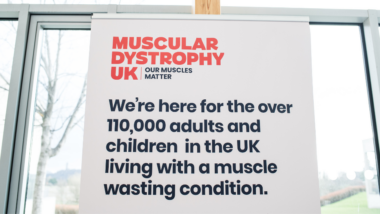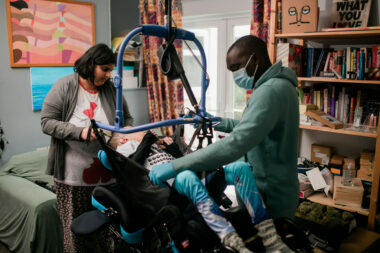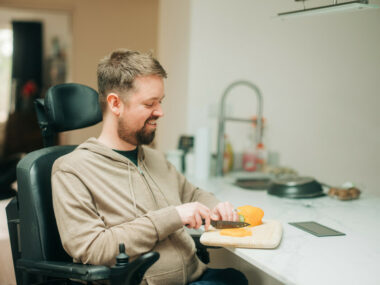Advice for living with or caring for someone with a muscle wasting condition. You can browse our information by topic. Financial support. Housing, adaptations and equipment. Everyday life. Managing your condition. Bereavement, grief and loss.

Practical and financial support available to help you with the costs of living with a muscle wasting or weakening condition.

Support and information on finding housing, adapting your home and financial support for equipment.

Live your everyday life to the full. Our information on transport, education, insurance and support with work.

Guidance on managing neuromuscular conditions: Exercise, fatigue management, postural care, and mental health. Information on diagnostic procedures, surgeries, and navigating your local neuromuscular care.

We are here to support families through bereavement, grief and loss. Talk directly to a grief counsellor for free via online chat.

Information and support for parents, caregivers and families of people with muscle wasting conditions.

Being diagnosed with a muscle wasting or weakening condition can be stressful and lonely. We have information and support for you.